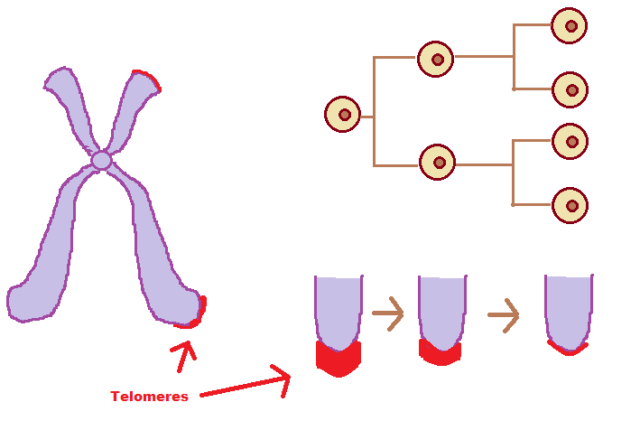Postcode Lottery: Is your home neighbourhood affecting how you age?

Flat hunting is, without a doubt, the most tedious chore. To begin with, you need to find something you can afford; somewhere close enough or at least accessible via public transport to your work or uni; a property that is actually habitable (half-decent insulation, preferably no damp/mice/weird neighbours); an acceptable trade-off between council tax bands and the safety of the area; a landlord or estate agent that isn’t *awful*; and that’s to name a few. And now, to add to that list, it turns out that the
Recent research from the University of Glasgow has found that living in a “stressful
The finding that our home
Telomeres are the protective ‘caps’ on DNA, which can be found at both ends of a chromosome2. Each time a cell divides, the DNA within it must also divide in order to pass genetic information on to the two new daughter cells. While DNA replication is a highly controlled process, it is still imperfect; each time a chromosome replicates, it gets a little bit shorter. Luckily, it loses its length from telomere caps – areas of DNA that do not hold any important information for the cell – and which the chromosome can therefore afford to lose without suffering any loss of function. This means that we can tell the age of a cell by the length of a telomere – if the telomeres are shorter, it means the DNA in that cell has been replicated many times, indicating that it is ‘older’.

In this study, researchers took a blood sample from people who had previously been asked about their perceptions of their
This doesn’t mean to say we should make a mass exodus from Glasgow – in fact, Glasgow recently ranked within the top 10 cities in the world3 and it has been voted as the most millennial-friendly UK city 4. For one thing, the study focused on people’s local areas, so we don’t need to rule out entire cities. It also, as with all research, has its limitations. The study measured
Scientists are always interested in ‘modifiable risk factors’ – any characteristics that may increase your chance of disease or ill health that can be changed or improved, especially by policy changes. The researchers behind this study are hopeful that their research will be influential, as “neighbourhood environments are potentially modifiable, […] future efforts directed towards improving disadvantaged local environments may be useful to lessen the effects [on] how fast people age”. If the government or local councils use this evidence as a basis to invest in deprived neighbourhoods and reduce inequality, then this sort of research could promote real change. Unfortunately, we are currently living in times of austerity, and that is unlikely to change anytime soon, especially given the continuous expense of Brexit negotiations. But research like this is important – it gives us an informed foothold from which we can ask for change. If politicians are aware of the biological impact their decisions can have, they may endeavour to make decisions that are healthier for all of us. But that’s a big ‘may’.
This artcile was specialist edited by Niamh Armstrong and copy-edited by Sonya Frazier.
References
- You can find a link to the original study on the University website, here: https://www.gla.ac.uk/news/headline_642640_en.html
- Find out more about telomeres and how they replicate here; https://www.khanacademy.org/test-prep/mcat/cells/cellular-development/v/telomeres-and-cell-senescence
- https://www.glasgowlive.co.uk/news/glasgow-news/glasgow-ranked-top-10-time-15968097
- https://www.independent.co.uk/travel/news-and-advice/best-city-millennials-glasgow-quality-life-cost-scotland-a8854181.html










